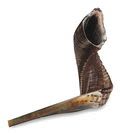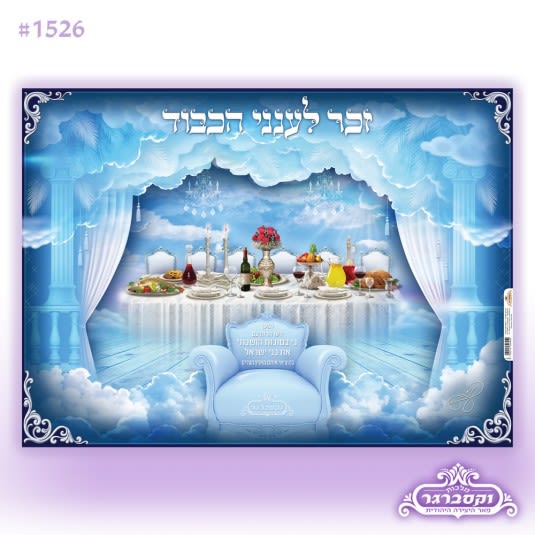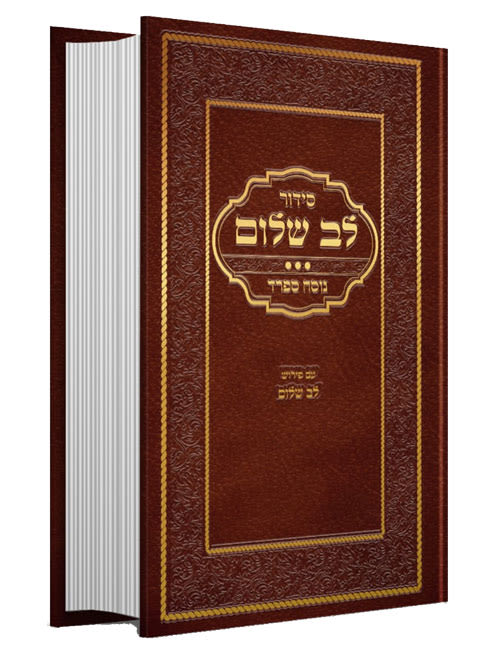
Vayelech: The Fine Print
Just like the rabbi required Yossele to read his own Ketuba so he couldn't shirk the responsibility of adhering to its terms, we are required to...

So now, write this song for yourselves (Devarim 31:19).
Our sages derive from the above passage that every Jew is commanded to write a Torah scroll for himself. With Hashem's loving grace, the following parable will help us understand the rationale behind this commandment:
Yossele was the most mischievous lad in the entire township of Ulanov. His sticky fingers found their way into every single pot of trouble in the area. By the third grade, he had already been blacklisted by every single cheder in a five-mile radius. Yossele wasn't a bad boy; he just seemed to have briars in the seat of his trousers – he couldn't sit still for three seconds.
The Rabbi of the township was a scholar with an uncanny insight into human nature. When Yossele's Bar Mitzva drew near, the Rabbi arranged for Yossele to become the apprentice of Chaim Yankel, the local blacksmith with the sledge-hammer sized forearms.
Chaim Yankel's massive and powerful appearance was deceiving, for in actuality, he was a humble scholar of remarkable piety that devoted every free minute to Torah and prayer. Even while he was shoeing a horse or fixing the spoke of a wagon, Chaim Yankel would recite Tehillim or Mishnayos by heart.
The blacksmith shop was a perfect solution for Yossele. He was in awe of the way Chaim Yankel handled the massive draft horses, the hammer, and the forge. The backbreaking work channeled all of Yossele's energies into a productive mode. Yossele was always at Chaim Yankel's side, and started accompanying him to the daily public prayer services as well. Before long, Yossele was learning Chumash and Mishnayot with his boss on their lunch break. By the time he was eighteen, Yossele became a "kosher" young man ready for marriage.
The local matchmaker found a perfect match for Yossele – the daughter of Meir'ke, a local balagula, or wagon master. Meir'ke didn't have much money or social standing, so he was more than pleased to land Yossele, an observant young man with a skill and a livelihood. Yossele – now an expert in horses and wagons – decided to leave the grueling toil of the smithy and to join his new father-in-law as a balagula with a horse and wagon of his own.
The Rabbi knew that Yossele was fine under the watchful eye of Chaim Yankel. Yet, he had his reservations about how Yossele's deportment might be as a married man traveling around the countryside. Under the chuppa, when it came time read the Ketuba, or marital contract – an honor usually reserved for one of the local scholars – the rabbi turned to Yossele the groom, and to everyone's amazement said, "The groom will now read the Ketuba – out loud – word for word!"
With no choice, Yossele read the ketuba while the Rabbi translated every word from Aramaic to the Yiddish vernacular. Yossele read Ve'eflach, and the Rabbi called out, "You'll work for your wife!" Yossele read Ve'okir, and the Rabbi called out, "You'll cherish your wife!" Yossele read Va'efarness, and the Rabbi called out, "You'll make a living for your wife!"
When the reading was over, the rabbi dipped his goose quill in a tiny pocket-sized inkwell, and thrust it into Yossele's hand: "Sign here," the rabbi smiled. "You yourself read the Ketuba loud and clear in front of everybody; you can't complain that you didn't know what's written in the fine print! We hope you'll be a good husband, Yossele!"
Hashem requires each and every one of us to write our own Torah scroll, for that requires us to familiarize ourselves with the obligations that are written inside. Just like the rabbi required Yossele to read his own Ketuba so he couldn't shirk the responsibility of adhering to its terms, we are required to write, read, study, and disseminate Torah so that we won't be able to claim ignorance of what's written inside.
In like manner, Rebbe Nachman of Breslev requires each of us to do our best to print, distribute, and learn his holy writings, for he promises that those who learn his writings will not only merit to do teshuva, but will hasten the full redemption of our people, soon and in our time, amen (See Likutei Moharan, Appendix "Maalas Toraso," 7 – 10).












Tell us what you think!
Thank you for your comment!
It will be published after approval by the Editor.